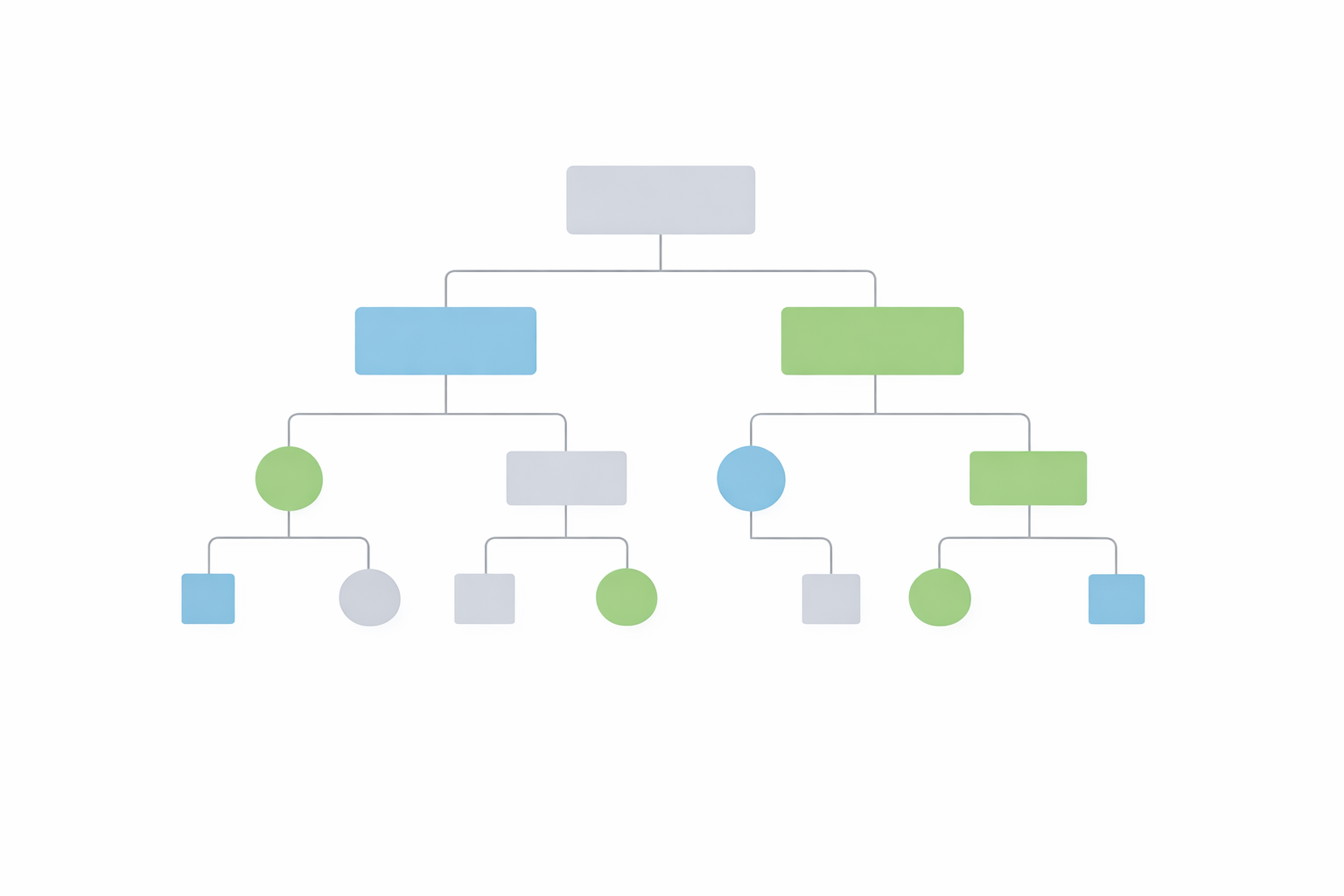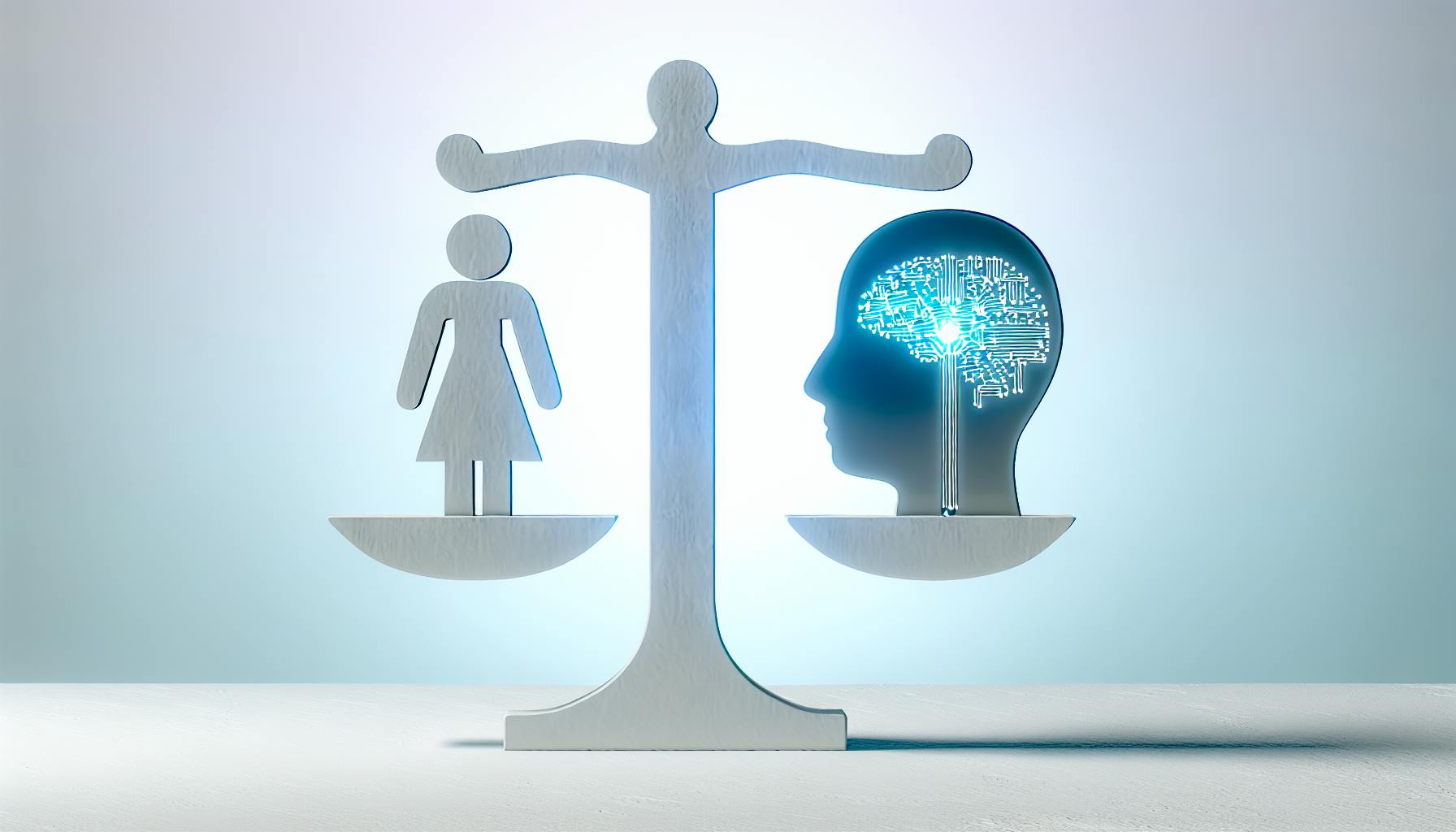With the rapid evolution of AI technology, most HR professionals would agree that AI integration presents new opportunities to optimize HR capital solutions.
In this article, we will explore how AI can be seamlessly woven into HR systems and processes to unlock enhanced efficiency, insight, and decision-making.
You will discover real-world examples of AI improving talent management, learn best practices for ethical AI implementation, and gain clarity on how to prepare your HR function for an AI-driven future.
Unveiling the Convergence of AI and HR Capital Solutions
AI is rapidly transforming the landscape of human resources, providing new capabilities to enhance talent management, organizational development, and other critical HR functions. Integrating AI into HR capital solutions creates opportunities to streamline processes, unlock insights, and empower more strategic decision-making.
Overview of HR Capital Solutions
HR capital solutions refer to the combination of software, services, and strategies used by HR teams to optimize human capital management. Key components include:
- Talent acquisition: Attracting, sourcing, assessing, hiring, and onboarding talent
- Talent management: Training, developing, engaging, and retaining top performers
- Organizational development: Aligning culture, leadership, teams and processes to business goals
- HR analytics: Collecting workforce data and deriving insights to guide people decisions
Integrating AI and automation into these solutions can make routine HR tasks more efficient while enabling a more proactive, data-driven approach to managing talent.
The Evolution of AI in Human Capital Management
AI has rapidly evolved from an emerging technology to a mission-critical asset for HR leaders seeking an edge in today's competitive talent landscape. Key milestones in AI's journey include:
- 2010s: Early HR applications of basic algorithms for resume screening and basic people analytics
- Mid 2010s: Machine learning adoption for predictive analytics and employee churn models
- Late 2010s: Natural language processing for smart surveys and voice/video analysis
- 2020s: Rapid acceleration of AI in HR spurred by advances in deep learning and need for digital transformation
Today, AI powers everything from job description writing tools to personalized career recommendations for employees. This technology will only grow more sophisticated with time.
Setting the Scene for AI-Powered HR Solutions
It's clear that AI is no longer just hype for HR, but a real game changer in practice. Key ways this technology can transform HR capital solutions careers include:
- Automating high-volume recruiting and talent management tasks
- Extracting deeper insights from employee data via advanced analytics
- Enabling hyper personalized, scalable employee experiences
- Identifying hidden patterns and trends to enhance workforce planning
- Reducing biased human decisions through data-based recommendations
As AI capabilities advance, these technologies will shape the future of human resources management. HR teams that embrace this shift will gain invaluable intelligence and efficiency.
AI-Driven Talent Acquisition and Recruitment
Artificial intelligence is rapidly changing talent acquisition and recruitment. AI tools can automate tedious tasks, engage candidates, and remove biases from the hiring process.
Automating HR Tasks with AI in Recruitment
AI streamlines recruiting by handling repetitive administrative duties. This allows recruiters to focus on more strategic initiatives:
-
AI-powered software can automatically post new job openings to multiple platforms. This saves recruiters time manually updating dozens of sites.
-
Intelligent screening tools review resumes and filter out unqualified applicants based on required skills, experience level, and other criteria. This creates a more relevant candidate pool for recruiters to evaluate.
-
Chatbots engage candidates by answering common questions and scheduling interviews via natural language conversations. This provides a smooth applicant experience.
By automating these mundane tasks, AI lets recruiters prioritize building relationships with top talent.
Enhanced Candidate Experience with AI
AI also improves the candidate experience:
-
Chatbots create personalized interactions at scale by responding to thousands of applicants simultaneously. This results in faster response times and greater candidate satisfaction.
-
Virtual assistants guide candidates through applications and assessments using natural language. This simplifies the process for applicants.
-
Automated updates keep candidates informed on their status via text and email. This transparency helps organizations strengthen their employer brand.
With AI, the hiring process becomes more positive and candidate-centric.
AI for HR Efficiency in Talent Sourcing
In talent sourcing, AI matches candidates to open positions more efficiently than humans can:
-
Algorithms rapidly scan millions of profiles on job sites and professional networks to identify qualified people. This expands the talent pool.
-
Predictive analytics determine which candidates have the highest likelihood of success in a given role based on historical hiring data. This surfaces the best people.
-
Custom machine learning models learn the qualifications and attributes a company seeks. This enables precise talent searches.
By leveraging AI, HR departments reach talent at scale while minimizing manual efforts.
Bias Reduction in Hiring through AI
Without proper design, AI could perpetuate biases in hiring. However, with thoughtful implementation, AI can counteract problems like affinity bias:
-
Blind recruitment tools remove names, photos, schools, addresses, and other potentially biased information from applications. This enables more impartial screening.
-
Algorithms can be designed to ignore non-job-related factors like gender, ethnicity, age, etc. and focus strictly on skills. This mitigates biased decision-making.
-
Continuous algorithm audits safeguard against the models drifting from impartiality. The tech can then be re-trained on balanced data.
As AI becomes further ingrained in hiring, ensuring it promotes DEI initiatives remains an ethical priority.
With responsible AI, organizations can hire outstanding talent efficiently at scale while championing diversity, equity and inclusion.
Optimizing HR Capital Solutions with AI Integration
AI integration in HR capital solutions provides organizations with enhanced capabilities to streamline processes, unlock insights, and empower strategic decision-making. By leveraging AI's pattern recognition and predictive analytics, HR teams can optimize critical functions.
AI Applications in HR: A Broad Spectrum
AI has diverse applications across HR:
- Recruiting: AI streamlines talent sourcing, screening, interview scheduling, and offer management. Chatbots engage candidates.
- Onboarding: AI guides new hires through paperwork, equips managers, tracks progress.
- Training: AI assesses skills gaps, recommends training, and provides personalized e-learning.
- Performance: AI analyzes employee data to highlight high/low performers.
- Retention: AI predicts employee flight risk and prescribes interventions.
- Culture: AI surveys employees and evaluates alignment between desired and actual culture.
- Compensation: AI ensures equitable pay by analyzing total rewards and benchmarks.
This demonstrates AI's expanding role, from high-volume hiring tasks to sensitive retention issues.
The Role of Mosaic Human Capital Solutions
Mosaic Human Capital Solutions focuses specifically on leveraging AI and people analytics to create integrated HR systems. Their capabilities include:
- DE&I Analytics: Identifies biases in job posts and progression barriers faced by minority groups
- Career Coach: Provides employees personalized guidance for development
- Culture Assessment: Highlights cultural gaps impeding engagement and growth
- Predictive Churn: Forecasts retention risk across segments
- Pay Equity: Benchmarks compensation and progression for fairness
This combination of AI tools creates a holistic view of the workforce, informing targeted and proactive talent strategies.
Streamlining HR Processes through AI
HR teams can utilize AI to enhance process efficiency:
- Workflow Automation: AI optimizes task routing, tracking, and hand-offs between teams.
- Data Management: AI structurally organizes employee data, ensuring accuracy and access.
- Self-Service Portals: AI chatbots handle common employee inquiries, freeing up HR capacity.
These capabilities drive productivity gains, allowing HR to focus on value-add initiatives.
AI in Employee Lifecycle Management
The application of AI and analytics spans the employee lifecycle:
- Onboarding: AI chatbots guide new hires, ensuring completeness of tasks.
- Development: AI identifies skill gaps and recommends training programs.
- Performance: AI analyzes collaboration patterns, goals progress, and benchmarks to highlight high/low performers.
- Succession: AI evaluates readiness of talent pools to fill critical roles.
This showcases AI's expanding value throughout the employee journey within an organization.
In summary, AI integration in HR capital solutions enables enhanced workforce visibility, informed strategic planning, and impactful process improvements for HR teams.
sbb-itb-34a8e9f
Leveraging AI for Enhanced HR Decision-Making
Artificial intelligence (AI) tools provide human resources (HR) professionals with data-driven insights to inform strategic workforce decisions. By analyzing current and historical HR data, AI identifies trends, predicts outcomes, and reveals patterns that would otherwise go unnoticed. This empowers HR leaders to make decisions backed by statistical evidence versus intuition alone.
AI for HR Predictive Analytics
AI-powered predictive analytics enable HR departments to forecast future needs and challenges. For example, predictive turnover analysis identifies employees most likely to leave the organization. HR can then develop targeted retention strategies. Likewise, AI talent acquisition models predict hiring demand so recruiters can proactively source qualified candidates. AI also forecasts future skills gaps based on broader industry trends, allowing HR to get ahead of reskilling needs.
AI in Workforce Planning and Strategy
Workforce planning is a top priority yet often proves difficult for HR leaders. AI simplifies this process through data analysis. By evaluating past staffing numbers, turnover rates, and performance metrics, AI models determine optimal team structures and capacity levels. This allows HR to right-size teams, reallocate resources, and identify reskilling opportunities. As new projects and priorities emerge, AI adjusts recommendations accordingly, supporting organizational agility.
AI and HR Analytics for Real-Time Insights
While historical analytics have value, real-time data offers immense strategic advantages. AI parses through employee and operational data as it is generated, identifying issues as they emerge. For example, sentiment analysis of workplace chatter can detect cultural problems or morale changes early on. Likewise, analyzing system access patterns may reveal unauthorized users. By flagging these insights immediately, HR can respond with urgency when needed.
Enhancing Employee Retention with AI Insights
Losing top talent creates substantial replacement costs and productivity losses. AI combats this through predictive churn analytics, talent flow analysis, and exit surveying. By identifying flight risks early, HR can intervene with personalized counteroffers and career development plans. Mapping employee movement also reveals which teams or managers have poor retention. Exit surveying then pinpoints issues driving turnover, allowing HR to implement targeted retention initiatives. This empowers organizations to retain their most valuable team members.
In summary, integrating AI and advanced analytics into human capital decisions enables more informed, proactive, and evidence-based workforce planning. This leads to better allocation of HR resources, right-sized teams, minimized talent losses, and ultimately fuels competitive advantage. HR leaders must embrace these technologies today to strategically transform their function for the future.
Best Practices for AI Implementation in HR Capital Solutions
To successfully leverage AI, organizations need the right people, processes and technology foundations in place for responsible innovation and scalable value creation.
Building a Skilled Team for AI in HR
Assembling a skilled, multidisciplinary team is critical for the successful adoption of AI in HR capital solutions. This team should include:
-
AI and data science experts to develop, implement, and maintain AI models. Look for people with experience applying AI specifically to HR use cases.
-
HR domain experts to provide insights into current processes and identify areas for improvement. They will set requirements and evaluate the business impact of AI solutions.
-
IT staff to handle data infrastructure, integration, security and monitoring. As models are deployed, IT ensures ongoing model governance.
-
Change management specialists to drive user adoption. They will communicate changes, train staff on new AI tools, and gather feedback.
This cross-functional group will ensure AI projects have the required technical capabilities while also aligning to business goals around streamlining HR processes and enhancing decision-making.
Ensuring Ethical AI Use in HR
There are important ethical considerations when applying AI to manage human capital:
-
Protect employee privacy when collecting data to train AI models. Anonymize personal information and limit data access.
-
Take steps to reduce bias in training data and evaluate models for fairness. This promotes diversity, equity and inclusion.
-
Maintain transparency in how AI arrives at decisions impacting employees. Clearly communicate model outcomes to build trust.
-
Allow human oversight and control over AI tools. Enable staff to verify automated decisions and make corrections when needed.
Following best practices around ethics and responsible AI instills confidence in these technologies among staff and leadership. This drives support for further AI adoption.
Embracing Continuous Learning and AI Evolution
AI models require continuous improvement and adaptation:
-
Monitor model performance to detect any decreases in accuracy over time. Retrain as needed on new data.
-
Regularly re-evaluate business requirements as processes evolve. Enhance models to meet changing needs.
-
Keep pace with advances in AI through research and testing. Identify opportunities to upgrade techniques.
-
Listen to user feedback to improve interfaces and functionality. Enhance ease-of-use over time.
With a culture focused on continuous learning, HR teams can ensure their AI tools deliver maximized value as business conditions change.
Creating a Unified Data Ecosystem for AI in HR
Integrating data across HR systems creates a solid foundation for AI:
-
Consolidate employee data from all platforms into a single location, providing consistency.
-
Establish data pipelines to keep datasets up-to-date automatically as new data enters source systems.
-
Improve data quality through cleaning, normalization and enrichment. Accurate data drives accurate AI.
-
Catalog data to make understanding lineage and definitions easy. Enables models to be developed faster.
With reliable, unified HR data feeding AI models, organizations gain a comprehensive view of their workforce. This unlocks enhanced insights from AI predictions and recommendations over time.
Conclusion: Synthesizing AI and HR Capital Solutions for Future Readiness
AI integration offers immense potential to enhance HR capital solutions focused on the holistic employee experience. As this concluding section summarizes, AI capabilities can unlock the next frontier of data-driven decision-making across the employee lifecycle.
Reviewing the Impact of AI on HR Capital Solutions
-
AI enables process automation to streamline repetitive and time-consuming HR tasks like screening resumes and scheduling interviews. This allows HR professionals to focus on more strategic initiatives.
-
Predictive analytics from AI provide data-driven insights to guide critical workforce decisions on hiring, retention, compensation, and more. This supports evidence-based decision making.
-
Chatbots and virtual assistants create personalized, 24/7 employee experiences for queries on payroll, time-off requests, training opportunities etc. This drives efficiency and satisfaction.
Preparing for the Future of AI-Enhanced HR
Organizations can future-proof HR capital solutions with AI by:
- Assessing current processes to identify automation and analytics opportunities
- Selecting flexible AI solutions that integrate with existing HR systems
- Upskilling teams on using AI-generated insights to enhance data-driven decision making
- Developing protocols for responsible use of AI that respects employee privacy and avoids bias
Key Takeaways from HR Capital Solutions Reviews
HR capital solutions reviews highlight that:
- AI delivers measurable improvements in productivity, satisfaction, and other HR metrics when thoughtfully implemented
- Change management and continuous evaluation are vital in scaling AI adoption across the employee lifecycle
- AI should complement rather than replace human capabilities in HR for optimal results
The Road Ahead for AI-Powered Human Resources Management
As AI capabilities grow more advanced, human resources management will increasingly shift from reactive to proactive. AI promises to unlock unprecedented levels of data-driven agility in attracting, nurturing and retaining top talent at scale. While AI integration has its challenges, the future looks bright for AI-enhanced HR capital solutions.


